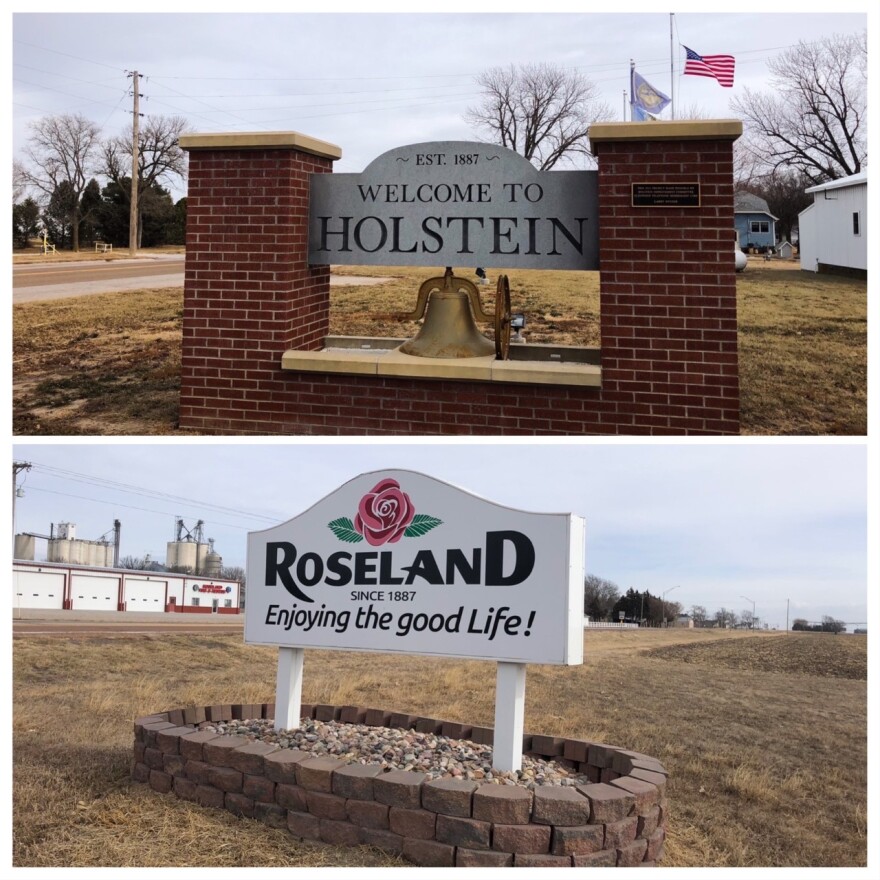The question caught Mark Gentert off guard. Had the village of Holstein, Nebraska, gotten its COVID relief money from the federal government yet? What COVID relief money? After all, it’s a town of just 200 people.
“So I contacted my clerk and she said she hadn’t gotten the paperwork in and we lost our shot at it,” said Gentert, who was Holstein’s chairman at the time. “And I’m like ‘Oh, really?’”
The town had missed out on a little over $42,000.

It’s a problem many small towns ran into when the federal government almost $20 billion to small communities for pandemic recovery. With tiny populations and limited resources, many towns found the money to be more of a headache than a lifeline and decided to not pursue the funds.
The communities could use the money from the American Rescue Plan Act in ways — to improve water systems, write checks to local businesses that lost income or help struggling households.
The flexibility was intentional, said Kitty Richards, who leads the state and local fiscal recovery funds program at the U.S. Department of Treasury.
“Treasury is reaching out to some very small communities to try to make this funding as accessible as possible so that those communities can be empowered to invest in what's best for their residents,” she said. “But it is a challenge.”
After all, the money was supposed to go to some very small towns.
“One village … was eligible for $77 and did not apply,” Lee Will, Nebraska’s budget administrator said. “It was more headache than it was worth to get the $77.”
That happened for communities bigger than that village of one, and for checks bigger than $77. Records from Missouri, Kansas, Nebraska, Illinois and Iowa show that more than 300 small towns — nearly 10% of those communities across the region — collectively turned down nearly $8 million.
When small towns declined or did not respond, state governments redistributed the funds to the small towns that did pursue the money.
Outside of his chairman role, Gentert also runs a meat processing company with his wife Belinda in Holstein. It smells like bacon outside Gentert Packing Co., where it sits across from the Cow Town Saloon.

Gentert said small towns didn’t pursue the money because they don’t have the resources and staff to stay on top of such programs. Larger cities have hired accounting firms to process the money. Even only slightly bigger towns have full-time clerks.
Holstein’s clerk had been working for the town on top of another full-time job. Gentert said he doesn’t blame her for missing the details.
“It was just like a letter in the mail with a thousand other letters, and if you missed it, you know,” he said. “She’s got a lot on her plate, too.”
Will said the state and partners like the League of Nebraska Municipalities and the University of Nebraska’s rural outreach program worked hard to communicate with small towns.
“A lot of looking up mailing addresses, going on Facebook pages. I talked to folks who were on the tractor,” he said. “I heard the fax machine in my office for the first time in, like, years.”
But those faxes and Facebook messages didn’t seem to reach Holstein. It’s a missed opportunity, Holstein’s new chairman Chad Lang said. The village could use some park improvements and upgraded water systems.

“If they were giving it out like that, just send a check,” Gentert said. “I'll guarantee there wouldn't be a town in this state that wouldn't have taken it.”
Lynn Rex, the executive director for the League of Nebraska Municipalities, said decisions to not apply or not respond to the money weren’t driven by apathy or malice.
“For the very smallest of the small, their clerk may come in maybe once a week, gets paid almost nothing,” Rex said. “It may seem overwhelming for them and while they have the passion and the intellect, they may not feel they have the resources at the very local level.”
Just five miles away from Holstein, the town of Roseland is getting ready to spend its money. The town of about 200 will get just over $47,000.
Chairman Danny Trausch said getting the money was fairly simple for Roseland — thanks to the village’s accountant.

“I didn't know what we were even getting into,” he said. “And then we went and talked to the accountant and he told us to apply, the worst they can tell you is ‘no.’”
A week later, the village of Roseland had the first of its two payments. The money could go to upgrading water infrastructure or outfitting its new community center.
For Beaconsfield, Iowa, the money was worth the hassle, though clerk Ryan Garbe said it came down to the wire.
“I wasn't going to apply for it,” Garbe said. “But I thought to myself: if I didn't apply for this and the town didn’t get a chance to maybe get a little extra help, I would feel so bad that I didn't try.”
After some encouragement from the state, Garbe secured about $2,000 for the village of 17. Not a lot, but something.
“Our annual budget is like $7,500,” councilmember Bob McLead said. “There are only 17 of us in town and bear in mind three, three of the 17, are council members. We have a mayor and our clerk so a third of the town is the city government.”
Copyright 2022


